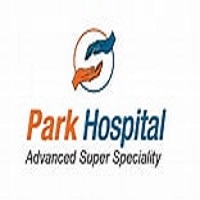- Afghanistan
- Åland Islands
- Albania
- Algeria
- American Samoa
- Andorra
- Angola
- Anguilla
- Antarctica
- Antigua and Barbuda
- Argentina
- Armenia
- Aruba
- Australia
- Austria
- Azerbaijan
- Bahamas
- Bahrain
- Bangladesh
- Barbados
- Belarus
- Belgium
- Belize
- Benin
- Bermuda
- Bhutan
- Bolivia
- Bonaire, Sint Eustatius, and Saba
- Bosnia and Herzegovina
- Botswana
- Bouvet Island
- Brazil
- British Indian Ocean Territory
- British Virgin Islands
- Brunei
- Bulgaria
- Burkina Faso
- Burundi
- Cambodia
- Cameroon
- Canada
- Cape Verde
- Cayman Islands
- Central African Republic
- Chad
- Chile
- China
- Christmas Island
- Cocos [Keeling] Islands
- Colombia
- Comoros
- Cook Islands
- Costa Rica
- Croatia
- Cuba
- Curaçao
- Cyprus
- Czech Republic
- Congo - Kinshasa
- Denmark
- Djibouti
- Dominica
- Dominican Republic
- Timor-Leste
- Ecuador
- Egypt
- El Salvador
- Equatorial Guinea
- Eritrea
- Estonia
- Ethiopia
- Falkland Islands
- Faroe Islands
- Fiji
- Finland
- France
- French Guiana
- French Polynesia
- French Southern Territories
- Gabon
- Gambia
- Georgia
- Germany
- Ghana
- Gibraltar
- Greece
- Greenland
- Grenada
- Guadeloupe
- Guam
- Guatemala
- Guernsey
- Guinea
- Guinea-Bissau
- Guyana
- Haiti
- Heard Island and McDonald Islands
- Honduras
- Hong Kong SAR China
- Hungary
- Iceland
- India
- Indonesia
- Iran
- Iraq
- Ireland
- Isle of Man
- Israel
- Italy
- Côte d’Ivoire
- Jamaica
- Japan
- Jersey
- Jordan
- Kazakhstan
- Kenya
- Kiribati
- Kosovo
- Kuwait
- Kyrgyzstan
- Laos
- Latvia
- Lebanon
- Lesotho
- Liberia
- Libya
- Liechtenstein
- Lithuania
- Luxembourg
- Macau SAR China
- Macedonia
- Madagascar
- Malawi
- Malaysia
- Maldives
- Mali
- Malta
- Marshall Islands
- Martinique
- Mauritania
- Mauritius
- Mayotte
- Mexico
- Micronesia
- Moldova
- Monaco
- Mongolia
- Montenegro
- Montserrat
- Morocco
- Mozambique
- Myanmar [Burma]
- Namibia
- Nauru
- Nepal
- Netherlands
- Netherlands Antilles
- New Caledonia
- New Zealand
- Nicaragua
- Niger
- Nigeria
- Niue
- Norfolk Island
- North Korea
- Northern Mariana Islands
- Norway
- Oman
- Pakistan
- Palau
- Palestinian Territories
- Panama
- Papua New Guinea
- Paraguay
- Peru
- Philippines
- Pitcairn Islands
- Poland
- Portugal
- Puerto Rico
- Qatar
- Congo - Brazzaville
- Réunion
- Romania
- Russia
- Rwanda
- Saint Barthélemy
- Saint Helena
- Saint Kitts and Nevis
- Saint Lucia
- Saint Martin
- Saint Pierre and Miquelon
- Saint Vincent and the Grenadines
- Samoa
- San Marino
- São Tomé and Príncipe
- Saudi Arabia
- Senegal
- Serbia
- Serbia and Montenegro
- Seychelles
- Sierra Leone
- Singapore
- Sint Maarten
- Slovakia
- Slovenia
- Solomon Islands
- Somalia
- South Africa
- South Georgia and the South Sandwich Islands
- South Korea
- South Sudan
- Spain
- Sri Lanka
- Sudan
- Suriname
- Svalbard and Jan Mayen
- Swaziland
- Sweden
- Switzerland
- Syria
- Taiwan
- Tajikistan
- Tanzania
- Thailand
- Togo
- Tokelau
- Tonga
- Trinidad and Tobago
- Tunisia
- Turkey
- Turkmenistan
- Turks and Caicos Islands
- Tuvalu
- U.S. Virgin Islands
- Uganda
- Ukraine
- United Arab Emirates
- United Kingdom
- United States
- U.S. Minor Outlying Islands
- Uruguay
- Uzbekistan
- Vanuatu
- Vatican City
- Venezuela
- Vietnam
- Wallis and Futuna
- Western Sahara
- Yemen
- Zambia
- Zimbabwe
required to be MT( medical transcription)
Highlight
Job Overview
Location
Behror, Rajasthan
Job Type
Full Time
Date Posted
5 months ago
Qualification
Post Graduate
Additional Details
Job ID
428
Job Views
172
Job Description
In the context of medical documentation, \"MT\" stands for \"Medical Transcription.\" Medical transcription involves the process of converting voice-recorded medical reports, notes, or other information dictated by healthcare professionals into written text. This process is crucial for maintaining accurate and comprehensive patient records.
Description of Medical Transcription (MT)
Purpose:
- To create accurate and detailed written records of medical consultations, procedures, and patient interactions.
- Ensures that all medical documentation is readily available for patient care, legal purposes, and historical reference.
Process:
- Dictation: Healthcare professionals dictate their notes using recording devices or voice-to-text software.
- Transcription: Medical transcriptionists (MTs) listen to these recordings and transcribe them into written documents. This process may involve the use of specialized transcription software.
- Review and Edit: The transcribed documents are reviewed for accuracy, grammar, and medical terminology. MTs ensure that all medical terms are used correctly and that the final document reflects the intended meaning of the original dictation.
- Formatting: The transcriptionist formats the document according to medical and institutional standards, ensuring it adheres to legal and clinical documentation requirements.
Skills Required:
- Medical Knowledge: Understanding medical terminology, anatomy, and procedures is crucial for accurate transcription.
- Typing Speed and Accuracy: Efficient typing skills are necessary to handle the volume of work and ensure precision.
- Attention to Detail: MTs must pay close attention to detail to avoid errors that could affect patient care or legal documentation.
- Listening Skills: Clear understanding of various accents and dictation styles is important for accurate transcription.
Tools and Technology:
- Transcription Software: Used for converting audio files into text. Some systems offer voice recognition features to assist with transcription.
- Electronic Health Records (EHR) Systems: Transcriptions are often integrated into EHR systems for easy access by healthcare providers.
Challenges:
- Varied Accents and Speech Patterns: Different accents or speech impediments may make transcription more challenging.
- Medical Jargon: The complexity of medical terminology can pose difficulties, especially if the transcriptionist is unfamiliar with specific terms.


